Donald Trump must not turn his back on Australia while China rises: Kurt Campbell
US Deputy Secretary of State Kurt Campbell has warned president-elect Donald Trump not to turn his back on Australia, while ambassador Kevin Rudd declared the country ‘is ready’ to work closely with the new president.
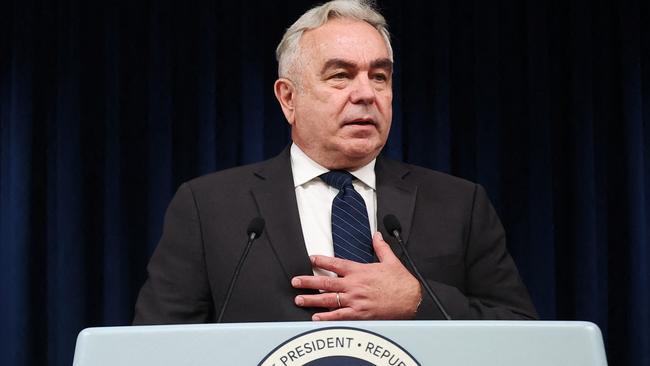
US Deputy Secretary of State Kurt Campbell has warned president-elect Donald Trump not to turn his back on Australia in the face of a “relentless” China, while ambassador Kevin Rudd declared the country “is ready” to work closely with the new president.
It came as former defence chief and co-author of the Defence Strategic Review, Angus Houston, declared there was an urgent need to sharply increase defence spending to 3 per cent of GDP in the face of a sharp deterioration in the nation’s strategic outlook.
Sir Angus’s comments are significant because he said Australia’s outlook was now worse than last year when he made headlines when launching the DSR by saying the country’s security environment then was the worst he had ever seen.
He told a US Studies Centre security conference in Sydney defence spending needed to rise to 3 per cent, a steep jump from around 2 per cent now, because of new dangerous developments like the war in the Middle East and the emerging China-Iran-Russia-North Korea axis, as well as the Russia-Ukraine war and an aggressive China.
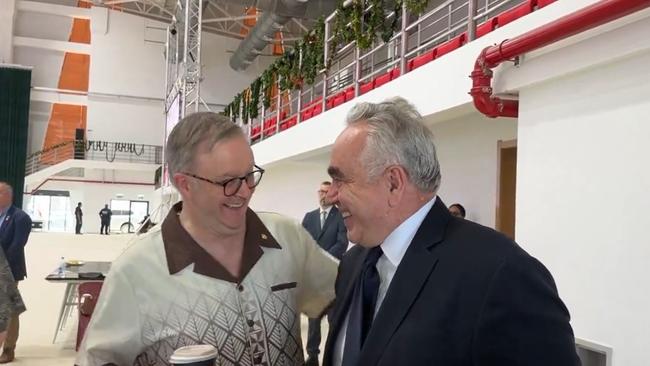
As Australia tries to prepare for the Trump presidency, Mr Campbell warned the Albanese government it must be proactive in trying to persuade Mr Trump ongoing engagement with allies like Australia was a better strategic choice than a more isolationist America.
“This is a time right now to be innovative, to be optimistic, to work, to make the argument about why common purpose is in our best interests, and why the United States should not withdraw from the world, from partnerships, to work more closely than ever with Indo Pacific partners. Nowhere is that more important than Australia,” Mr Campbell told the conference via video link from Washington.
“The hope will be that the next administration will resist the temptation to go inward and to put its interests uniquely first, and to recognise that we are stronger working with allies and partners,” said Mr Campbell, who will leave the job when Mr Trump becomes president on January 20.
It came as Mr Rudd declared Australia “is ready” to work closely with Mr Trump and his new administration to bolster an alliance that has never been more important or relevant.
Australia’s US ambassador said that in a world of “many challenges” Australia welcomed an active and engaged US in the Indo Pacific and was ready to deepen that regional engagement under the new president.
In his first detailed public comments since Mr Trump’s election, Mr Rudd portrayed Australia as an ally that was willing to actively pursue closer ties with the new US administration and to be seen to be proactively contributing to the broader alliance.
“We live in a world of many challenges, and we are clear that the region we want, the interests we have and the values we share require and call for our two nations to work together, and that is what we’ll continue to do with President Trump and his incoming administration,” Mr Rudd told the US Studies Centre’s International Strategic Forum in Sydney via video from Washington.
Mr Rudd, who has been forging contacts with senior Republicans across the US over the past year, said his embassy was well prepared to engage positively with the incoming administration.
“Here at the embassy we’ve been working hard through the course of the last year to ensure that we were well prepared for this moment, and the bottom line is we’re ready,’ he said. “The team here at the embassy and the government of Australia are ready to work closely with the new Trump administration to continue to realise the benefits of what is a very strong economic and security partnership.”
Both sides of politics in Australia have strongly backed Mr Rudd’s ongoing tenure as ambassador, dismissing claims by critics that Mr Rudd’s previous critical comments about Mr Trump before he became the ambassador should disqualify him from continuing in the role.
Mr Campbell said America’s ongoing engagement in the Indo Pacific had never been more important given China’s increasingly hegemonic behaviour.
“I think it’s the place where we can expect some strategic surprise. China is relentless. They want to build bases. They want to extend their power there. We’re going to have to do more, and we have to do more with Australia and New Zealand,” Mr Campbell said.
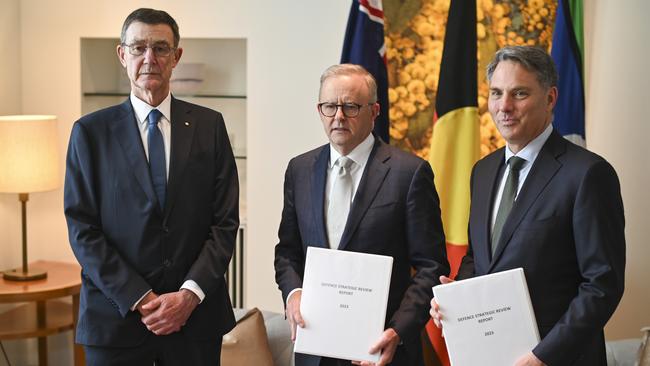
He said that while much had been achieved so far in the Aukus nuclear submarine pact, the “hard yards lie ahead”.
“I would very much like to see AUKUS continue to thrive. There are a few voices that have raised questions about AUKUS (in the US), but I think most of that, frankly, is contrarian,” he said.
But he said he was an optimist because there was “deep bipartisan support for engagement” in the Indo Pacific within the Republican Party, which will control both houses of congress.
“I’m confident that these powerful, purposeful senators and leaders in the house (who) have made a career of advocating for American engagement in the Indo Pacific, my hope is their arguments, their persuasiveness and their perspective will have a big impact on how the (Trump) administration adjudicates its way forward.”
Mr Campbell said he was concerned that proposed budget cuts to the State Department would limit America’s ability to increase or even maintain its current diplomatic focus on the Indo Pacific, and he hoped that incoming secretary of state Marco Rubio would seek to rectify this, recognising it is a “moment of acute strategic competition” in the region.
In order to better support Australia and the common strategic goals of the two countries, Mr Campbell said there needed to be “more diplomatic engagements, more US aid, more peace corps” because “all those things are going to be important”.
He also said the US and Australia needed to deal with the “China we have” rather than the China we might want.
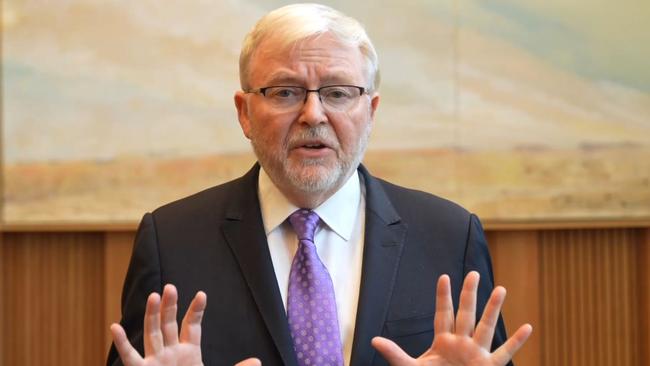
Mr Rudd’s message to the famously transactional Mr Trump was Australia would enhance the value of an already strong alliance through the development of the AUKUS submarine deal, which he described as “a great venture”.
“The fundamental value of AUKUS for all three parties is that it makes all three countries stronger than we would have been without. It strengthens all three countries’ ability to deter threats, and it grows the defence industrial base and creates jobs in all three countries,” he said.
In a clear message to the incoming president, he portrayed AUKUS, and Australia’s commitment to invest more than $3bn into the production cycle for US Virginia-class submarines, as an example of Australia’s willingness to be a proactive contributor to the alliance. “Australia’s plans to purchase nuclear-powered submarines from the United States will represent a large-scale purchase from American industry. That’s a significant defence deal,” he said.
“And on top of that, we’re already investing into the US submarine industrial base to expand the capacity of their shipyards. Put these things together, and it represents a strong, positive message for America, one that shows Australia is a valuable and committed, frank ally and partner.”
Mr Rudd made no mention of China but said that in a world of “many challenges, Australia’s close relationship with the United States has never been more relevant or more important”. He paid tribute to America’s role in maintaining stability in the Indo Pacific by remaining actively engaged in the region, militarily, economically and diplomatically.
“We know regional balance is best maintained when we work together in ways that also enhance our combined capabilities. So we welcome the US deepening its engagement with Indo Pacific partners and allies,” Mr Rudd said.


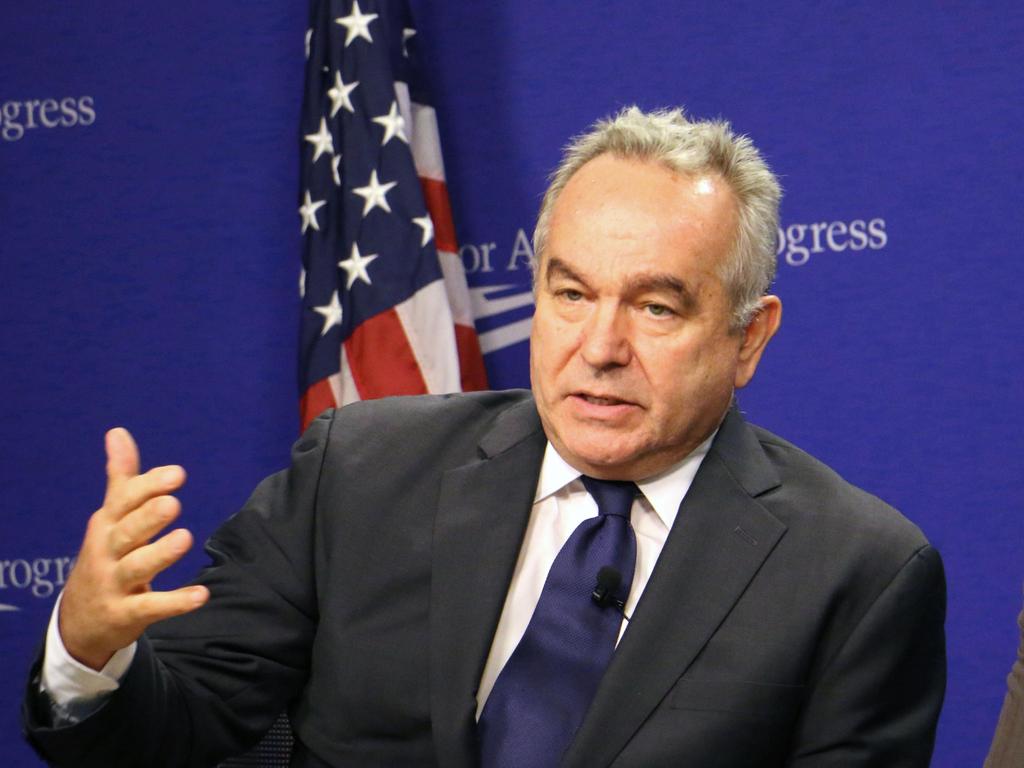




To join the conversation, please log in. Don't have an account? Register
Join the conversation, you are commenting as Logout